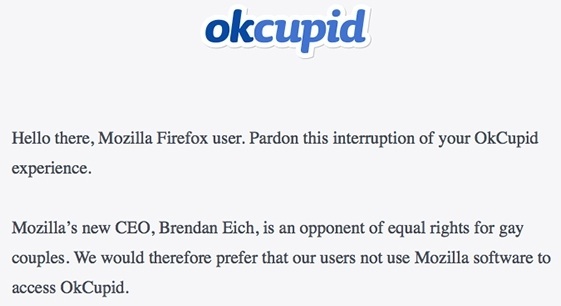Facebook announced a new way for people to log in to apps “anonymously” today. You still log into the (third party) app using your Facebook credentials, but Facebook sends absolutely no information about you at all to the app.
Read all the coverage about it on TechMeme. The tech press is impressed, even to to point of wondering if there’s a catch.
I don’t know the details, such as if this is something all apps have to implement if they want Facebook login, or if developers can opt not to offer it while still using the “normal” FB login.
But it doesn’t really matter. Facebook is addressing a strong desire for privacy by its users.
Distill that even further and it comes down to this – Facebook is treating its users, at least in this case, like its customers.
Then there’s Google. Today I read that they’re going to stop scanning student Gmail accounts (because of a lawsuit). Of course the rest of us who haven’t sued Google get the same old treatment.
I’m also still simmering over Google+ logins. I’ve diligently avoided getting a Google+ account for years now. The times that they’ve auto-created one for me because I clicked the wrong button I’ve deleted it. I’m still able to use Gmail without it, but Google Voice is rumored to be shutting down soon, and the only way I may be able to continue using my Google Voice phone number is if I finally relent and get a Google+ account.
I’m not going to go into the very many reasons why getting a Google+ account may be a bad idea – you can Bing that if you don’t already know. But even though no one wants to use Google+, Google is pushing, whining and pleading with you constantly to sign up – because it’s the only way they can continue to push higher numbers of “active users.”
No one uses Google+, but the whole Internet has an account there.
We’re not Google’s customers. Never were. We’re just a bundle of data to be sold to advertisers, and they don’t give a damn what we think about that.
Facebook may not be all that different, really. But at least today they treated us like human beings. And for that I’m grateful.
Don’t Be Evil™


